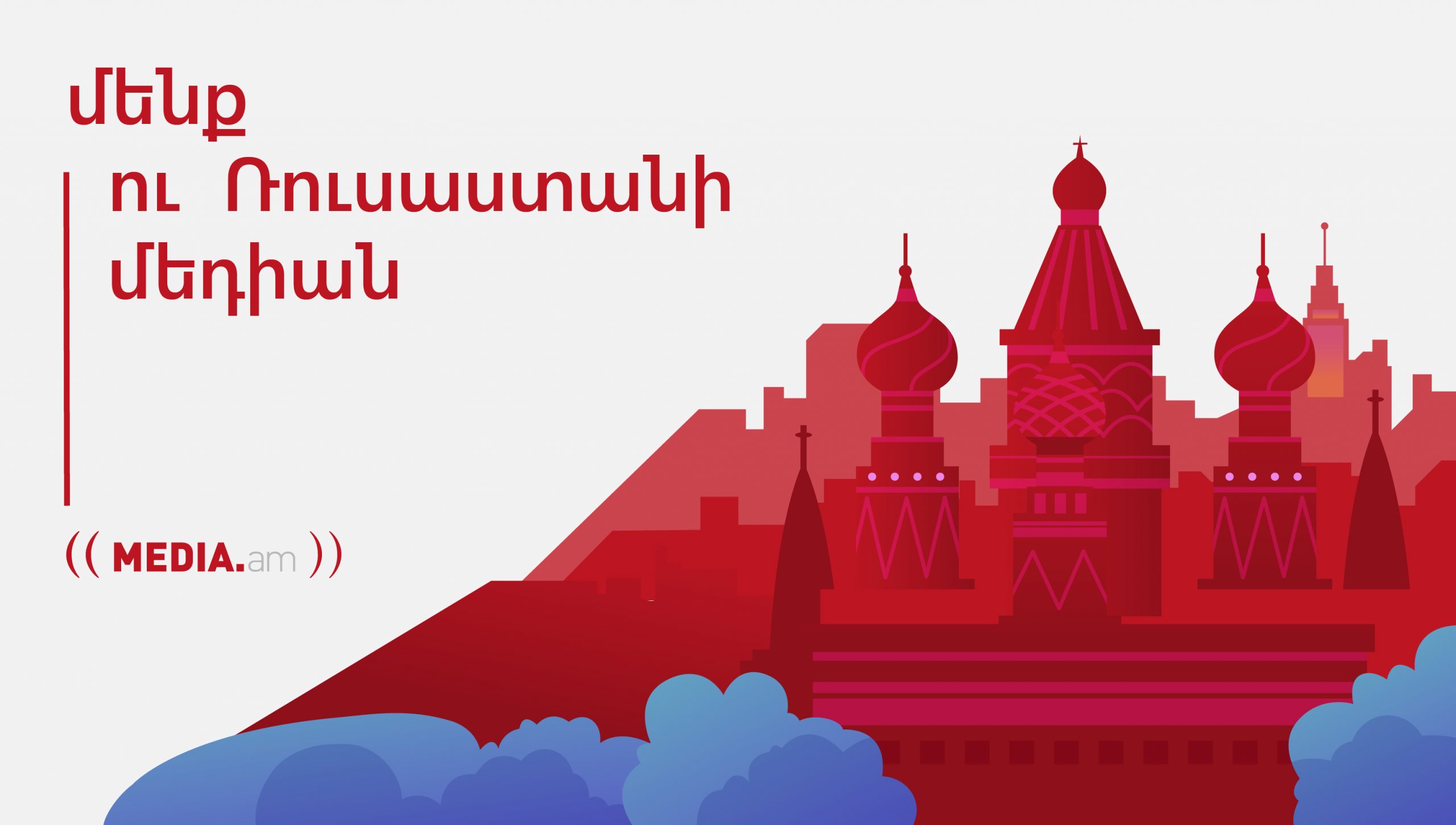Russia’s position and steps are crucial for Armenia. And now more than ever. What is conveyed directly, implicitly, or figuratively from Moscow often requires the ability to decipher, dust off the layer of Kremlin propaganda, and make connections.
In this case, the Armenian media outlets, which have a rather weak reputation, are often seen as mere translators, that is, simply reprinters, without localizing the information. As a result, all sorts of weed seem to fill the media field, take root and prosper.
Especially taking into account the fact that many media platforms working in our state do not directly miss any chance to add the blows coming from the outside as well as blows from behind.
In their turn, many Russian media outlets openly rely on the opinions of destructive forces and the people of Armenia.
It becomes an issue of national security, to which we do not seem to pay much attention. And in vain.
In general, our perceptions about the role, position and masks of Russia have already changed seriously (we see more depth than just a permanent defender), but the changes about the role and masks of the media are still not.
When we come across such articles and consider them a serious signal (translating it into Armenian, commenting, placing hope on, or getting angry with the content), it is worth admitting that we become a consumer of a Russian information policy, without any filters.
The idea that France is not only going to send troops to the South Caucasus and Artsakh, thus trying to play the role of the “first violin” but also to open the way for “international intervention,” is one of the messages that should be considered only in the Russian context. (It turns out that according to Moscow, the Russian army is not international. Maybe it is local?).
And this Russian media does not see anything strange, calling Macron, Michel and Pashinyan an “alliance of populists.” And in the end, directly threatening Armenia with revenge.
Russia’s policy has an important goal: to threaten and intimidate, indicating that any independent steps of another state will be punished. Or to mock. But in all cases, they tend to intimidate psychologically.
What is happening in Yeraskh, which is targeted only half a kilometer away from the Russian military units, is not interpreted by Russia in any way. And Armenia’s presence in the Russian media territory is almost zero.
There are issues we would do well to voice in the Russian press by our initiative.
But we cannot regulate our voice in any way in the Russian media. Unlike the Azerbaijanis, for whom many Russian media outlets are open and desirable.
Of course, we cannot regulate much, from the army and diplomacy to the tools to counteract the intensity of media attacks. But in the end, if we do not, they will do it for us.
Public internal resistance requires food.
The deployment of Russian troops in Artsakh and within the borders of Armenia and its real role are the questions, the answers and hypotheses of which Armenia itself can promote in the Russian-language media space.
Starting with the questions, what will happen if the Russian army does not leave and what will happen if it does, ending with discussions on the powers and responsibilities of the army.
It is clear that the main goal after the war was the presence of Russian troops in the region and the establishment of the image of a Russian savior. But how will that goal be formulated in the near future, when the incidents on the Armenian-Azerbaijani border show no tendency towards ending?
The “post-war settlement” operation, which is currently taking place under the auspices of Russia, can not be left to the opinion of the Russian source or the comments of their Armenian satellites.
Resisting foreign media attacks is also part of a larger operation that can be called the reconstruction of the semi-Soviet, semi-criminal system.
If we manage to think about the quality of information along with freedom of information, then our state system, which is in a state of unconsciousness, should at least try not to be too late to comment and substantiate the events of the day (from resignations and appointments to defense issues) and eventually, not to become a mirror reflection of the Russian (or Azerbaijani) propaganda.
Otherwise, the information field will continue to taste the posts of Russian-speaking bloggers with dubious images or the state imperial propaganda and put their own interests in them.
Nune Hakhverdyan







